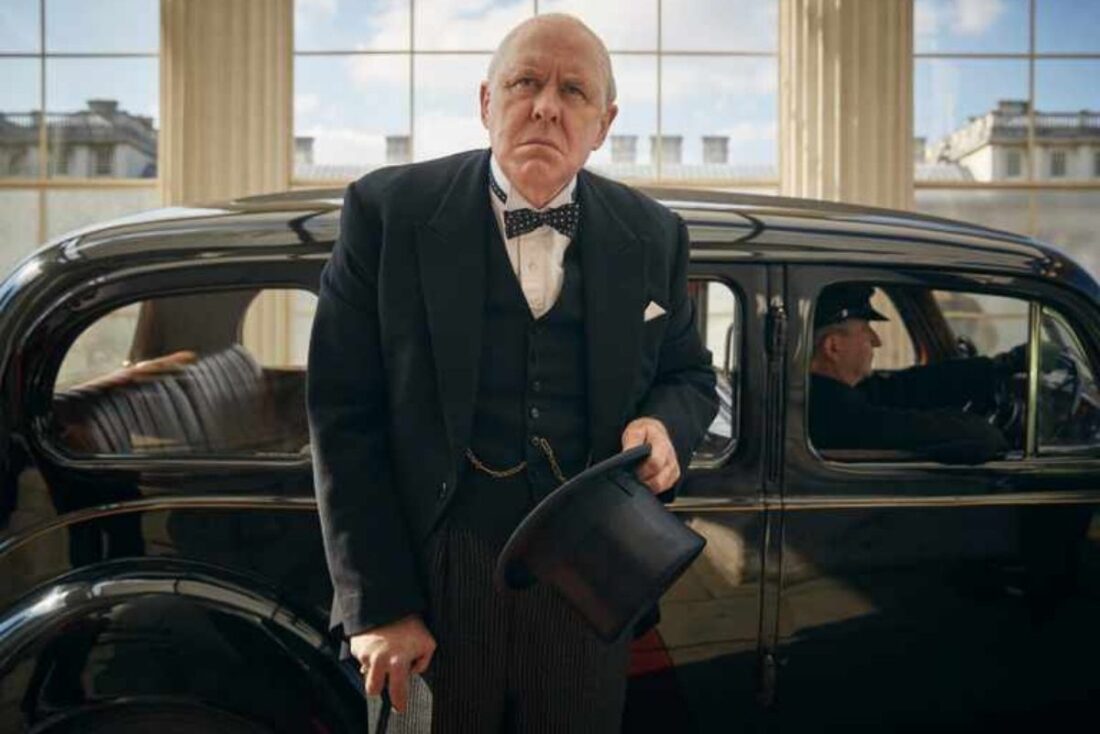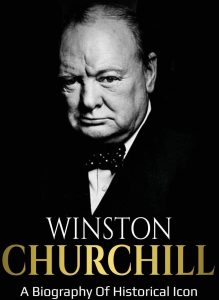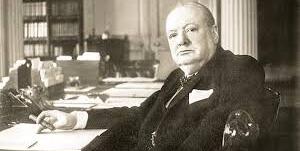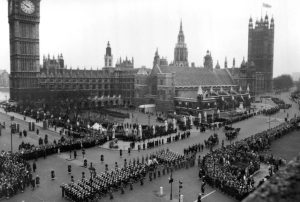Winston Churchill is regarded as one of the most influential Britons to have ever lived. Keep on reading to find out how he died and who was winston churchill.
Sir Winston Leonard Spencer-Churchill was a British government official, military official and author who filled in as the prime minister of Great Britain from 1940 to 1945 and from 1951 to 1955. In the wake of becoming the prime minister in 1940, Churchill helped lead an effective Allied methodology with the U.S and, Soviet Union during World War II to defeat the Axis powers and create after war harmony. During his country’s “darkest hours” in World War II, Prime Minister Winston Churchill enlivened the United Kingdom – and a significant part of the rest of the world – with his solidarity and conviction that the Allies would vanquish the Nazis, anyway hard the battle. But how did Winston Churchill dies? Let us read the article to find out.
Winston Churchill Background
Early Life
Churchill was born on 30 November 1874 at his family’s ancestral home, Blenheim Palace in Oxfordshire. On his dad’s side, he was an individual from the British nobility as a direct descendant of the first Duke of Marlborough. His dad, Lord Randolph Churchill, representing the Conservative Party, had been chosen Member of Parliament (MP) for Woodstock in 1873. His mom, Jennie, was the daughter of Leonard Jerome, a rich American businessman.
In 1876, Churchill’s paternal grandfather, John Spencer-Churchill, was delegated Viceroy of Ireland, which at that point was part of the United Kingdom. Randolph became his private secretary and the family migrated to Dublin. In 1880, Winston’s brother, Jack, was born there. All through a large part of the 1880s, Randolph and Jennie were viably estranged, and the children were for the most part taken care of by their caretaker, Elizabeth Everest. Churchill later composed that “she had been my dearest and most intimate friend during the whole of the twenty years I had lived”.
Churchill started boarding at St George’s School in Ascot, Berkshire, at age seven yet he was not academic and his conduct was poor. In 1884 he moved to Brunswick School in Hove, where his academic performance improved. In April 1888, at 13 years old, he barely finished the selection test for Harrow School. His father needed him to plan for a military career thus his last three years at Harrow were in the army form. After two ineffective endeavors to acquire admittance to the Royal Military Academy, Sandhurst, he succeeded on his third. He was acknowledged as a cadet in the cavalry, beginning in September 1893. His father passed away in January 1895, not long after Churchill completed at Sandhurst
Military Career
Churchill delighted in a brief however astounding profession in the British Army at a time when British military force was at its peak. He joined the Fourth Queen’s Own Hussars in 1895 and served in the Indian northwest frontier and Sudan, where he saw the Battle of Omdurman in 1898. While in the Army, he composed military reports for the Pioneer Mail and the Daily Telegraph, and also wrote two books on his experiences and encounters in the military and during war: ‘The Story of the Malakand Field Force’ (1898) and ‘The River War’ (1899). In 1899, Churchill left the Army and worked as a war journalist for the Morning Post, a moderate daily newspaper. While covering the Boer War in South Africa, he was taken prisoner by the Boers during a scouting endeavor. He made headlines when he escaped, going around 300 miles to Portuguese domain in Mozambique. Upon his re-visitation of Britain, he wrote about his encounters in the book ‘London to Ladysmith via Pretoria’ (1900).
Parliament and Cabinet
In 1900, Churchill became a member of the British Parliament in the Conservative Party for Oldham, a town in Manchester. Following his father into politics, he additionally followed his dad’s feeling of autonomy, turning into an ally of change and social reform. Unconvinced that the Conservative Party was focused on friendly equity, Churchill changed to the Liberal Party in 1904. He was chosen a member of the Parliament in 1908 and was designated to the prime minister’s cabinet as president of the Board of Trade.
When he was serving as the president of the Board of Trade, Churchill joined recently delegated Chancellor David Lloyd George in contradicting the extension of the British Navy. He presented a few changes for the prison system, presented the first minimum wage permitted by law and assisted in setting up labour exchanges and unemployment insurance. Churchill additionally aided the passing of the People’s Budget, which imposed taxes on the rich to pay for new social welfare programs. The spending plan passed in the House of Commons in 1909 and was at first vanquished in the House of Lords prior to being passed again in 1910.
In January 1911, Churchill showed his harder side when he made a questionable visit to a police attack in London, with two affirmed burglars holed up in a building. Churchill’s level of interest and participation is still in question: Some records have him go to the scene just to see with his own eyes what was happening; others express that he purportedly offered directions to the police on the most proficient method to best storm the building.
What is known is that the house burst into flames during the attack and Churchill forestalled the fire brigade from dousing the flames, expressing that he thought it better to “let the house burn to the ground,” instead of risking lives trying to save the occupants. The bodies of the two burglars were subsequently found inside the scorched remnants.
First Lord of the Admiralty
Named First Lord of the Admiralty in 1911, Churchill modernized the British Navy, requesting that new warships be worked with oil-terminated rather than coal-terminated motors. He was one of the first to advance military aircraft and set up the Royal Navy Air Service. He was so passionate about aviation that he took flying lessons himself to see firsthand its military potential. Churchill additionally drafted a questionable piece of legislation to revise the Mental Deficiency Act of 1913, making sterilization of the dim witted compulsory. The bill, which made the remedy of confinement in foundations compulsory, was ultimately passed in both houses of Parliament.
World War I and World War II
Churchill stayed in his post as First Lord of the Admiralty through the beginning of World War I, however was constrained out as far as it matters for him in the sad Battle of Gallipoli. He resigned from the government at the end of 1915. For a short period, Churchill rejoined the British Army, directing a contingent of the Royal Scots Fusiliers on the Western Front and seeing activity in “no man’s land.” In 1917, he was named clergyman of weapons for the last year of the war, supervising the creation of tanks, planes and weapons.
In 1915, in the second year of World War I, Churchill was considered liable for the shocking Dardanelles and Gallipoli missions, and he was rejected from the war alliance government. He surrendered and elected to order an infantry contingent in France. Nonetheless, in 1917, he got back to legislative issues as a bureau part in the Liberal legislature of Lloyd George. From 1919 to 1921, he was secretary of state for war and in 1924 got back to the Conservative Party, where after two years he assumed a main part in the thrashing of the General Strike of 1926. Out of office from 1929 to 1939, Churchill gave unnoticed admonitions of the danger of Nazi and Japanese animosity.
From 1919 to 1922, Churchill filled in as clergyman of war and air and pioneer secretary under Prime Minister David Lloyd George. As frontier secretary, Churchill was entangled in another debate when he requested air ability to be utilized on insubordinate Kurdish tribesmen in Iraq, a British domain. At a certain point, he recommended that toxic gas be utilized to put down the resistance, a suggestion that was thought of yet never ordered. Cracks in the Liberal Party prompted the annihilation of Churchill as an individual from Parliament in 1922, and he rejoined the Conservative Party. He filled in as Chancellor of the Exchequer, returning Britain to the highest quality level, and refused to compromise against an overall work strike that took steps to injure the British economy. With the destruction of the Conservative government in 1929, Churchill was out of government. He was seen as a conservative radical, withdrawn from individuals.
Despite the fact that Churchill didn’t at first see the danger presented by Adolf Hitler’s ascent to control during the 1930s, he bit by bit turned into a main promoter for British rearmament. By 1938, as Germany started controlling its neighbors, Churchill had become a steadfast pundit of Prime Minister Neville Chamberlain’s approach of conciliation toward the Nazis. On September 3, 1939, the day Britain proclaimed battle on Germany, Churchill was again named First Lord of the Admiralty and an individual from the war bureau; by April 1940, he became executive of the Military Coordinating Committee. Sometime thereafter, Germany attacked and involved Norway, a misfortune for Chamberlain, who had opposed Churchill’s recommendation that Britain seize German hostility by singularly possessing essential Norwegian iron mines and seaports.
After the episode of World War II in Europe, Churchill was returned to his post as first master of the admiral’s office and after eight months supplanted the inadequate Neville Chamberlain as PM of another alliance government. In the main year of his organization, Britain remained solitary against Nazi Germany, yet Churchill guaranteed his country and the world that the British public would “never give up.” He energized the British individuals to an undaunted obstruction and expertly arranged Franklin D. Roosevelt and Joseph Stalin into a collusion that squashed the Axis.
In July 1945, 10 weeks after Germany’s destruction, his Conservative government endured a thrashing against Clement Attlee’s Labor Party, and Churchill surrendered as executive. He became head of the resistance and in 1951 was again chosen PM. After two years, he was granted the Nobel Prize in Literature for his six-volume authentic investigation of World War II and for his political talks; he was likewise knighted by Queen Elizabeth II. In 1955, he resigned as prime minister, however, stayed in Parliament until 1964, the year prior to Death of Winston Churchill.
Prime Minister
In May 1940, Churchill was still quite unpopular with numerous Conservatives and likely the vast majority of the Labor Party. Chamberlain stayed Conservative Party pioneer until October when infirmity constrained his renunciation. At that point, Churchill had prevailed upon the skeptics and his progression as gathering pioneer was a custom.
He started his prevalence by framing a five-man war bureau which included Chamberlain as Lord President of the Council, Labor pioneer Clement Attlee as Lord Privy Seal (later as Deputy Prime Minister), Halifax as Foreign Secretary and Labor’s Arthur Greenwood as a priest without portfolio. Practically speaking, these five were increased by the help bosses and priests who went to most of the meetings. The bureau changed in size and enrollment as the war advanced, one of the key arrangements being the main exchanges unionist Ernest Bevin as Minister of Labor and National Service. In light of past reactions that there had been no reasonable single clergyman responsible for the arraignment of the war, Churchill made and took the extra situation of Minister of Defense, making him the most remarkable wartime Prime Minister in British history. He drafted outside specialists into government to satisfy indispensable capacities, particularly on the Home Front. These included close companions like Lord Beaverbrook and Frederick Lindemann, who turned into the public authority’s logical guide.
The Conservatives won the overall political race in October 1951 with a general lion’s share of 17 seats and Churchill again became Prime Minister, staying in office until his abdication on 5 April 1955. Eden, his inevitable replacement, was reestablished to Foreign Affairs, the portfolio with which Churchill was distracted all through his residency. Future Prime Minister Harold Macmillan was delegated Minister of Housing and Local Government with a proclamation obligation to assemble 300,000 new houses for every annum, Churchill’s just genuine homegrown concern. He accomplished the objective and, in October 1954, was elevated to Minister of Defense. When did churchill die? He died in January 24, 196.
How did Winston Churchill lose power?
Winston Churchill’s Conservative Party lost the July 1945 general political race, driving him to venture down as Prime Minister of the United Kingdom. For a very long time he filled in as the Leader of the Opposition. During these years he kept on affecting world undertakings. In 1946 he gave his “Iron Curtain” discourse which discussed the expansionist approaches of the Soviet Union and the formation of the Eastern Bloc; Churchill likewise contended emphatically for British freedom from the European Coal and Steel Community; he considered this to be a Franco-German venture Britain actually had a realm. In the General Election of 1951 Labor was crushed. Churchill became Prime Minister for a second time. He kept on driving Britain yet was to experience the ill effects of medical conditions.
In light of Churchill’s health and his clear inability to focus on administrative work, he was not expected to stay in office for over a year or somewhere in the vicinity, however he continually postponed renunciation until at long last his health required it. One of the fundamental purposes behind the deferral was that his assigned replacement Eden likewise endured a genuine long term medical problem, following a botched abdominal operation in April 1953. George VI was succeeded by Elizabeth II, with whom Churchill built up a close friendship. A portion of Churchill’s associates trusted that he may resign after her Coronation in June 1953, because of Eden’s ailment, Churchill chose to build his own responsibilities by taking over at the Foreign Office. Eden was crippled until the year’s end and was never totally well again.
Conceivably due to the additional strain, Churchill endured a serious stroke on the evening of 23 June 1953. Notwithstanding being part of the way deadened down one side, he managed a cabinet meeting the following morning without anyone seeing his incapacity. From there on his condition weakened, and it was imagined that he probably won’t endure the end of the week. Had Eden been fit, Churchill’s prevalence would in all probability have been finished. Information on his sickness was kept from people in general and from Parliament, who were informed that Churchill was experiencing exhaustion. He returned home to Chartwell to recover and it was not until November that he was completely recuperated. Mindful that he was hindering both physically and mentally, he resigned as prime minister in April 1955 and was succeeded by Eden. He kept on sitting as MP for Woodford until he resigned from politics in 1964.
Did Winston Churchill die in office?
Churchill left his position as Prime Minister when his health began deteriorating, so he did not die in office. Elizabeth II offered to make Churchill Duke of London, however this was declined because of the complaints of his child Randolph, who might have acquired the title on his dad’s demise. He did, in any case, acknowledge the Order of the Garter to become Sir Winston. Albeit freely steady, Churchill was secretly blistering about Eden’s treatment of the Suez Crisis and Clementine accepted that large numbers of his visits to the United States before long were endeavors to help fix Anglo-American relations. Subsequent to leaving the premiership, Churchill stayed a MP until he remained down at the 1964 general political decision. Aside from 1922 to 1924, he had been a MP since October 1900 and had addressed five constituencies.
When of the 1959 general political decision, be that as it may, he only occasionally went to the House of Commons. Regardless of the Conservative avalanche in 1959, his own majority in Woodford fell by in excess of 1,000. He burned through the greater part of his retirement at Chartwell or at his London home in Hyde Park Gate, and turned into an aficionado of high society at La Pausa on the French Riviera.
In June 1962, when he was 87, Churchill had a fall in Monte Carlo and broke his hip. He was flown home to a London emergency clinic where he stayed for three weeks. Jenkins says that Churchill was never the equivalent after this accident and his most recent two years were something of a dusk period. In 1963, US President John F. Kennedy, acting under approval conceded by an Act of Congress, declared him an Honorary Citizen of the United States, yet he couldn’t go to the White House service. There has been a speculation that he turned out to be extremely discouraged in his last years however this has been decidedly denied by his own secretary Anthony Montague Browne, who was with him for his last ten years. Montague Browne composed that he never heard Churchill allude to sadness and absolutely did not experience the ill effects of it.
Winston Churchill Death
Sir Winston Churchill, celebrated as the greatest Briton in a 2002 BBC poll and known for leading the UK and its Allies to victory in World War II, suffered a severe stroke in June 1953 during a dinner at Downing Street. Paralyzed and kept from public knowledge, only a few, including Queen Elizabeth II, knew of his condition. The Queen, having ascended to the throne just a year before, instructed the 16th Duke of Norfolk to begin planning a state funeral that matched Churchill’s monumental legacy. This plan, dubbed Operation Hope Not, took final shape on January 26, 1965, just two days after Churchill’s death.
Churchill died on the morning of January 24, 1965, at his home at 28 Hyde Park Gate, London. Lord Moran, his physician, confirmed his death at 8:35 am following his final stroke on January 15. His last words, spoken to his son-in-law Christopher Soames, were, “I’m bored with it all.” The BBC aired the news of his death at 9:00 am, and the Queen immediately expressed her condolences to Lady Churchill, emphasizing Churchill’s irreplaceable genius and courage.
Desmond Henley of H. Kenyon Ltd., the Royal Household’s official funeral directors since 1928, took charge of embalming Churchill at his residence. Once preserved, attendants dressed him in his silk pajamas and dressing gown, placing him back in his bed. He lay in state at his home privately until his body was transported to Westminster Hall on the evening of January 26 for public viewing.
Security was tight as the police and other personnel were in place by 8:30 pm, described by The Daily Telegraph as England’s most extensive security operation. The lying-in-state attracted over 321,360 mourners and lasted until the morning of January 30, with the hall open for 23 hours each day.
Following the service, Churchill’s coffin traveled to the Tower of London with a 19-gun salute fired in his honor. The MV Havengore then carried his coffin down the Thames, passing dockers who lowered their cranes in an unplanned tribute. A formation of sixteen RAF jets flew overhead as the procession reached its conclusion.
Churchill’s final journey continued by train from Waterloo Station to Oxfordshire, where a private family service saw him laid to rest at St Martin’s Churchyard beside his family.
How old was Winston Churchill when he died?
When did winston churchill die, the British leader who led Great Britain and the Allies through World War II, died in London at the age of 90.
Did Winston Churchill’s secretary die in the fog of 1952?
In spite of the fact that a large part of the hit Netflix arrangement The Crown has been consistent with detail, chief Julian Jarrold included a couple of embellishments for our review diversion. One detail that has thrown numerous fans off was Winston Churchill’s (played by actor John Lithgow) secretary Venetia Scott, who incredibly passed on during the Great Smog of 1952 that became the overwhelming focus in scene four.
The young blonde Scott (played by actress Kate Phillips) starts working for Churchill as he leaves on his second term as Prime Minister. They seem to develop close as the servile specialist panders to Churchill’s every impulse and even peruses his first collection of memoirs, which he composed during his twenties. She grabs his eye subsequent to discussing a rousing section from his diaries she has retained, as the show kept on addressing Churchill’s narcissism.
Subsequent to visiting her flat mate who becomes sick during the smog in a hospital, Venetia hustles to Downing Street with a critical directive for her chief. Be that as it may, in a stun bend, she turns into a casualty of the lethal climate herself when she is run somewhere around a transport. Churchill is prodded on to handle the climate issue following quite a while of inaction once he visits his secretary’s body in the hospital, being obviously moved. He proceeds to give an ardent speech that urges Londoners to stay cheerful, and declares a series of measures to forestall a rehash of the destructive contamination, which was thought to have killed a bewildering 4,000 individuals at that point.
The discourse likewise saved Churchill from getting the hatchet, as the Queen (played by actress Claire Foy) was wanting to examine his ‘position’ in parliament with him the next day, encouraging him to venture down. However, was Venetia Scott a real person, and would she say she was the right hand to Churchill that got cut down? The enamoured secretary is indeed one of the few characters in the show who were not based off of a real person. She was concocted by The Crown’s maker, Peter Morgan, to add a feeling of misfortune to the Great Smog – and some additional dramatization to a generally average scene point. In spite of the fact that many were killed as London was shrouded in the thick, harmful smoke, the misfortune was significantly less of a political emergency than is passed on in the series.
Conclusion
Winston Churchill, like other influential world leaders, left behind a complex legacy. His fellow Britons celebrated him for defeating Adolf Hitler and the Nazi regime, earning him the top spot in a 2002 BBC poll of the greatest Britons, surpassing luminaries such as Charles Darwin and William Shakespeare. However, critics argue that his unwavering commitment to British imperialism and his staunch opposition to Indian independence highlighted his disdain for other races and cultures.
















